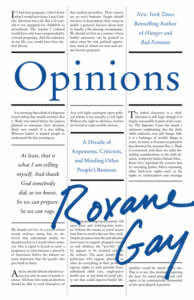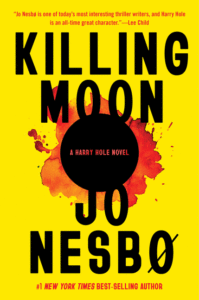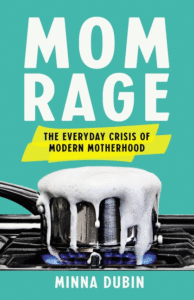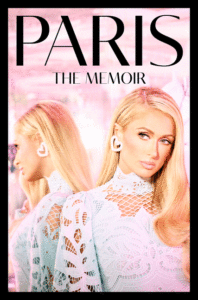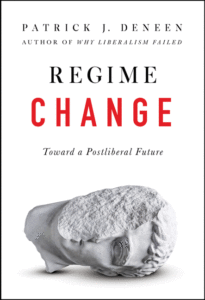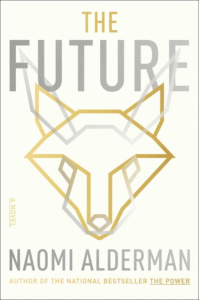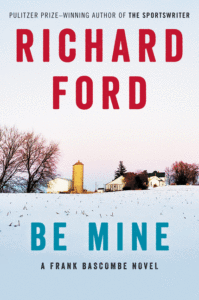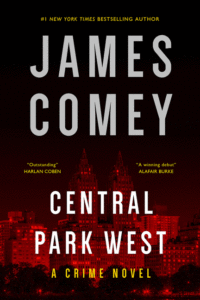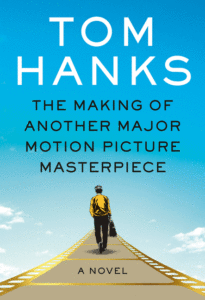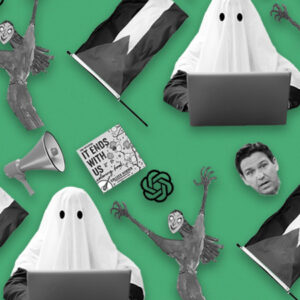The Most Scathing Book Reviews of 2023
“Yes, it’s her world and after reading her book I just wish I could move off-planet.”
“With the kids jingle bellingAnd everyone telling you be of good cheer…”
*
Welcome, fellow haters, to another bilious edition of the Most Scathing Book Reviews of the Year.
As longtime readers of this annual feature will know, each year in the run up to the holidays, we (the normally benevolent stewards of BookMarks.reviews) make a sacrificial offering to the literary criticism gods in the hope of a bountiful review harvest for the coming year.
Among the books being flung into the fiery pit this time around: Walter Isaacson’s “dull, insight-free doorstop” biography of Elon Musk; Paris Hilton’s “vapid and vaporous” memoir; Tom Hanks’ “bland busman’s holiday dressed up as literary fiction”; and Arnold Schwarzenegger’s “hollow PR exercise.”
So here they are, in all their gory, gut-punchin’ glory: the most scathing book reviews of 2023.
*
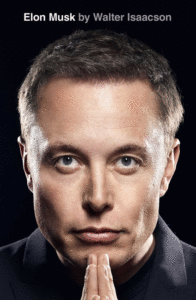
“Who or what is to blame for Elon Musk? Famed biographer of intellectually muscular men Walter Isaacson’s dull, insight-free doorstop of a book casts a wide but porous net in search of an answer … There’s a lot to work with here, but it doesn’t make reading this book any easier. Isaacson comes from the ‘his eyes lit up’ school of cliched writing, the rest of his prose workmanlike bordering on AI. I drove my espresso machine hard into the night to survive both craft and subject matter …
To his credit, Isaacson is a master at chapter breaks, pausing the narrative when one of Musk’s rockets explodes or he gets someone pregnant, and then rewarding the reader with a series of photographs that assuages the boredom until the next descent into his protagonist’s wild but oddly predictable life. Again, it’s not all the author’s fault. To go from Einstein to Musk in only five volumes is surely an indication that humanity isn’t sending Isaacson its best …
There is a far more interesting book shadowing this one about the way our society has ceded its prerogatives to the Musks of the world. There’s a lot to be said for Musk’s tenacity, for example his ability to break through Nasa’s cost-plus bureaucracy. But is it worth it when your savior turns out to be the world’s loudest crank? So who or what is responsible for Elon Musk? ‘Growing up in South Africa, fighting was normal,’ Musk says, and there’s a whiff of desperate masculinity floating through the book, as rank as a Pretoria boys’ locker room. It is not a coincidence that the back jacket features a fully erect penis (some may argue it is actually one of Musk’s rockets, but I remain unconvinced) …
Isaacson’s book constantly tries to build dramatic tension between the species-saving visionary and the beaten bullied boy. But we know the ending to Musk’s story before we even open it. In the end, the bullies win.”
–Gary Shteyngart on Walter Isaacson’s Elon Musk (The Guardian)
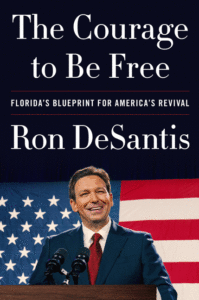
“The overall sense you get from reading his new memoir is that of the mechanical try-hard—someone who has expended a lot of effort studying which way the wind is blowing in the Republican Party and is learning how to comport himself accordingly …
All the culture war Mad Libs can’t distract from the dull coldness at this book’s core. A former military prosecutor, DeSantis is undeniably diligent and disciplined … Even the title, with its awkward feint at boldness while clinging to the safety of cliché, suggests the anxiety of an ambitious politician who really, really wants to run for president in 2024 and knows he needs the grievance vote … For the most part, The Courage to Be Free is courageously free of anything that resembles charisma, or a discernible sense of humor. While his first book was weird and esoteric enough to have obviously been written by a human, this one reads like a politician’s memoir churned out by ChatGPT …
At around 250 pages, this isn’t a particularly long book, but it’s padded with such banalities … Take out the gauzy abstraction, the heartwarming clichés, and much of what DeSantis is describing in The Courage to Be Free is chilling—unfree and scary.”
–Jennifer Szalai on Ron DeSantis’ The Courage to Be Free: Florida’s Blueprint for America’s Revival (The New York Times)
“…a book that must rank as one of the most bizarre I’ve ever read. Yes, it is—at moments—very sad. There’s ongoing shame in it for tabloid journalism. But for a title written explicitly in the cause of securing sympathy and understanding for its so-called author, boy, does it misfire. It’s not only that Harry is so petulant: a man who thinks nothing, even now, of complaining about the bedroom he was allotted for his summer hols in Granny’s castle. With every page, his California makeover grows less convincing …
What kind of person insists on an air-clearing meeting with their father on the day of his father’s funeral? A myopic, self-obsessed, non-empathic kind of person, I would say. Exactly the same kind of person, in fact, who would talk about reconciliation in the same breath as they publicly slag off their family … Such things are made all the more jarring by the yawning gap between the way Harry speaks and the way his ghost, JR Moehringer, writes…I suppose he wishes he were Ben Lerner, or some other hip young literary American gunslinger, rather than having to channel a raging Sloane who must look up the word compere in a dictionary when his brother asks him to be one at his wedding and whose epigraph from Faulkner—’The past is never dead. It’s not even past’—he found on brainyquote.com. Sometimes, Moehringer writes. Like this. In short sentences. Bang. Bang-bang. At other times, it’s as if he’s been at Harry’s weed or something …
Here we are. Penguin Random House has helped him out and we can only hope he’s happy with his end of the deal, a pact more Faustian by far than anything his father or brother have ever signed.”
–Rachel Cooke on Prince Harry’s Spare (The Guardian)
“…amounts to a book-length shrug … At least you can say there’s no false advertising. Roxane Gay’s new collection of essays is titled Opinions, after all, not Thoughts or Ideas. She gives us exactly what she promises: a series of opinions on various subjects, arranged haphazardly, adding up to nothing substantial at all …
It isn’t Gay’s fault that feminism became so devoid of meaning that our hard-won slogans were easily stripped from their context and used by bad actors to fight against abortion rights, to protest vaccine and mask mandates during the pandemic, and to harass trans women. But Gay, in her anti-intellectual stance, became a kind of mother figure for those who would prefer to avoid thinking their way through cognitive dissonance, smoothing back their hair to coo, ‘you’re already perfect, just the way you are’ …
It’s not an argument for acknowledging complexity, it’s an argument for not thinking. It’s an argument for focusing, first and foremost, on our own comfort … Such tepid writing makes no intellectual, ideological or psychological demand of its reader. Working against ideology might look like a principled, sophisticated stance, one that values nuance and uncertainty, but instead it reveals a lack of rigour. If anything, you could say that ‘comfort’ is her primary ideology, as she uses the word and its variations dozens of times throughout …
Readers see her waffling and confuse it for courage … ‘Extend your empathy’ is her instruction—as vague and thoughtless as an advertisement for a new moisturiser. This book is proof that the anti-fascist philosopher Simone Weil was right, when she wrote: ‘There is nothing more comfortable than not thinking.’”
–Jessa Crispin on Roxane Gay’s Opinions (The Telegraph)
“Killing Moon is so cruelly, brutally misogynistic and brimming with every savage cliche of crime fiction that it’s barely readable … Nearly ten pages into Killing Moon, I wondered whether Nesbo had always depicted women in such a cruel, hateful way. Did I overlook it for two whole decades? … Perhaps some readers simply don’t mind Nesbo’s description of young women as ‘parasitic bimbos on the hunt for a suitable host’ because, as he asserts, it’s traditional …
Maybe someone needs to remind Nesbo that storytelling in fiction allows us to explore alternate worlds. It lets us stand in the shoes of characters who are both like us and entirely different so we can expand our thinking and take on new perspectives. Storytelling that relies on tired cliches that frame women as hapless gold-digging victims who are lucky to have an ancient, alcoholic ex-cop on their case is a literary tradition we can do without.”
–Cat Woods on Jo Nesbø’s Killing Moon (Observer)
“Melodramas of oppression and resistance do not brook much nuance, and, in any event, it can be difficult to insist on ethical complexity when faced with a story that resonated with many readers … Mom Rage is Dubin’s book-length effort to grant mothers the absolution that many of them seek … Dubin’s claims and prescriptions are, by now, staples of pop-feminist nonfiction …
The newer books—call them ‘feminish’—engage only sparingly with the original sources. Reading paraphrases of paraphrases of paraphrases, one starts to feel as if there is something a little hollow and shiftless about the ease with which phrases such as ‘white supremacist, homophobic, classist, ableist, xenophobic, transphobic, misogynistic, capitalist patriarchy’ are trotted out. We get the right words, strung together like marquee lights, but not the structural analysis that puts them in relation to one another …
Dubin does not appear to have interviewed any mothers who do not claim to suffer from mom rage. Nor has she interviewed father … No doubt the patriarchy and capitalism have power, but how precisely that power results in the rage of mothers toward their children, as opposed to their husbands or their bosses, remains unclear … The imprecision of Dubin’s language strands her argument on unstable ground …
The book fails to universalize a particular predicament, and, in strenuously attempting to do so, turns into an exercise in ill-advised candor … How clearly can a writer see anyone or anything—her children or the social and political contours of motherhood—when she perceives everything through the haze of moral cliché?”
–Merve Emre on Minna Dubin’s Mom Rage: The Everyday Crisis of Modern Motherhood (The New Yorker)
“Now, in her early 40s, she has published a memoir, which for ephemeral, unreflective celebrities like her is usually a way of fending off imminent obsolescence. The book—ventriloquized by Joni Rodgers, who describes herself as a ‘story whisperer’—is as vapid and vaporous as the fragrances Hilton sells; all the same, archaeologists may one day consult it in the hope of understanding how and why our species underwent a final mutation into something glossily post-human. The antics of this entitled flibbertigibbet expose the absurdity of a culture in which the self only exists if it is validated by a selfie, membership of society depends on the mirage of social media and the reality in which we were all once anchored has been replaced by a flimsy virtual replica …
This air-headed mysticism merges with the digital revolution, which allowed Hilton to disseminate her image around the globe and to seep into our defenseless heads … Yes, it’s her world and after reading her book I just wish I could move off-planet.”
–Peter Conrad on Paris Hilton’s Paris: The Memoir (The Guardian)
“…an ascendant group of conservative thinkers persists in defining liberalism as everything and nothing…This motley crew might have served as an advertisement for liberalism’s commitment to religious toleration, were its denizens not united by their shared distaste for globalism, the sexual revolution and allegedly latte-lapping elites … Deneen’s disregard for details, among them the awkward fact that no one actually defends the position he attributes to practically everyone, is unfortunately characteristic. The post-liberals are dramatic, even hysterical, stylists, prone to sweeping pronouncements about the entirety of culture since the dawn of time …
The uninitiated might wonder whether Deneen should have consulted a single ambassador of ‘the many’ before making so many confident assertions about ‘what most ordinary people instinctively seek’ … Deneen makes it easy to turn away from his politics of personality and his terminological indignities.”
–Becca Rothfeld on Patrick J. Deneen’s Regime Change: Toward a Postliberal Future (The Washington Post)
“No…fever pitch is reached in Alderman’s new novel, whose outlook is decidedly more reformist than revolutionary. Instead of a bottom-up social movement led by young women, change in The Future comes from the top down … What follows is a dubious effort to dismantle the master’s house with the master’s tools. Alderman has an undeniable talent for concocting a twisty, rollicking narrative, replete with assassination attempts, desert island bunkers and machine-learning prophets. Yet for all its conspiratorial thrills, The Future mostly reads like a manifesto for technocracy wrapped up in a genre-fiction bow …
The book suffers not just from its dogmatism but also from its homogeneity … The book’s most impressive quality is its vivid, tactile imagination of our ultra-computerized future … Though it purports to affirm the human capacity for empathy and curiosity, The Future is built like a machine: calculating, doctrinaire and hollow on the inside.”
–Ian Wang on Naomi Alderman’s The Future (The New York Times Book Review)
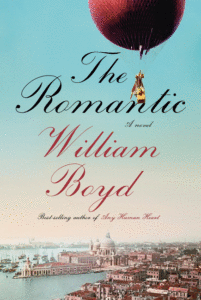
“All this should be fun. But alas, The Romantic is a tired, spiritless piece of work, written as if Mr. Boyd was slogging dutifully through the formula he created and has previously used to better effect … Who is Mr. Boyd’s target reader, one wonders? Anyone with a genuine interest in the Byron and Shelley circle, or African exploration, or literary London, will find nothing of consequence in these pages. And anyone looking for an engrossing love story will not find one in the conventional romance of Ross and his Raphaella. The novel might serve as a novice’s introduction to the period, a sort of 19th Century 101. But for an author of Mr. Boyd’s reputation, that’s a low bar to set.”
–Brooke Allen on William Boyd’s The Romantic (The Wall Street Journal)
“As usual the ‘action’ proceeds by peristalsis, with descriptions of roads, shops, real estate, traffic jams, motels, tourist attractions and free publications constantly interrupted by long, unwieldy flashbacks to all the stuff that’s happened since the last Frank Bascombe novel. It’s immersive stuff: reading these books is the closest you’ll come to being stuck in an actual traffic jam without leaving the comfort of your armchair …
I wonder whether a) people arrive at these books predisposed to favour fiction that showcases the mundane and b) the swathes of mediocre prose slip under the radar because it’s basically quite easy to read … If you like the boring bits of Knausgaard and Ford, I can’t argue with that. But I’m still going to try to persuade you not to read Be Mine, for several other reasons. First, there’s nothing novel about this novel … Why this boorish, boring also-ran is taking up fresh shelf space in 2023 is a mystery.”
–Claire Lowdon on Richard Ford’s Be Mine (Times Literary Supplement)
“The most intriguing thing about Central Park West—in a way, the real mystery here—is the strange sense that there is something missing. For all his power and access, all those decades of crimes and secrets, Comey has produced any other middle-aged lawyer’s clunky but passable fling at that courtroom novel he always threatened to write. It raises an almost depressing question: Does Comey—do any of these politicos turned authors—have anything to reveal at all? …
To describe the prose as workmanlike would be too kind. It is often lurching and awkward, and the dialogue frequently reads like someone ran the original English through a machine translator into a foreign language and back again … Location descriptions are painful, like notes that a more fluent writer would plug in fully intending to come back to on a second draft … But there is still something to like here. Within reason. For all its clichés, it is a work of genuine imagination. It is plotted with reasonable care …
How deflating, then, to discover that the most these semiretired potentates of the great secret machinery of government can imagine amounts to a rip-off of more professionally written TV shows and mid-tier Hollywood action properties.”
–Jacob Bacharach on James Comey’s Central Park West (The New Republic)
“It would be nice at this point to confirm Hanks’s book as a satire. That way we could applaud the means by which it deftly—even affectionately—pricks the pompous self-regard of Hollywood’s inner circle, complete with a star who unwinds by taking her Cirrus jet for a spin and a gonzo method actor who insists on sleeping in a tent. We might then go on to laugh at the idiotic footnotes that provide a needless justification for the use of slang and blithely mis-explain Alfred Hitchcock’s MacGuffin. Alarmingly, though, this tale is deadly serious. Johnson is great and Knightshade is amazing and therefore everything about them is a source of endless fascination. The production, says Hanks, runs for 53 days. Somehow his book makes it feel even longer …
A bland busman’s holiday dressed up as literary fiction, a bungled behind-the-scenes tour that can’t see the wood for the trees. It’s crying out for an editor. The plot is borderline incontinent … aking a movie is tough; writing a novel is hard, too. So accentuate the positives, draw a line and move on. On a pure sentence level Hanks’s book is at times pretty good. Overall I confess it was very much not for me.”
–Xan Brooks on Tom Hanks’ The Making of Another Major Motion Picture Masterpiece (The Guardian)
“Ms. Streisand is a woman of many talents. Curating memories of the way she was—well, that isn’t one of them … This plaintive observation would have packed a greater punch had it not been buried in an avalanche of minutiae about Ms. Streisand’s grade-school crushes, her pastries of choice at the local bakery, her ideal bagel toppings, her preferred beverage at the drugstore and her favorite treats at the movie theater … There may be gold there, but readers will have to pan diligently …
For 40 years, Ms. Streisand says, editors, including Jacqueline Onassis, asked her to write an autobiography. She steadfastly declined because of her desire to live in the present rather than dwell in the past. It should come as a surprise to exactly no one that, having finally acceded, Ms. Streisand charged full-bore into yesteryear. In so doing, she failed to remember her reaction to the overemoting Mr. Patinkin in the early days of the Yentl shoot: Sometimes less is more … Doesn’t have an index, so there are no shortcuts for impatient readers … Even her most devoted followers will be crying uncle or, more to the point, Yentl.”
–Joanne Kaufman on Barbra Streisand’s My Name is Barbra (The Wall Street Journal)
“What of the book? Permit me to save you the trouble of finding out for yourself: Be Useful is a raw deal, a hollow PR exercise filled with precepts and quips but devoid of self-awareness or humility. You might be swayed by Arnie’s touching faith in bipartisanship and the need to tackle the climate crisis or moved by his tales of heroic procurement of personal protective equipment during the early days of the COVID-19 pandemic. But as a pitch for Marcus Aurelius status…it’s thoroughly expendable—an overpromoted TED Talk, just another cross-promotional weapon in the Schwarzenegger multimedia arsenal.”
–Charles Arrowsmith on Arnold Schwarzenegger’s Be Useful: Seven Tools for Life (The Los Angeles Times)
*
Thirsty for more takedowns?
Reacquaint yourself with the most scathing book reviews of 2017 , 2018, 2019, 2020, 2021, and 2022.




